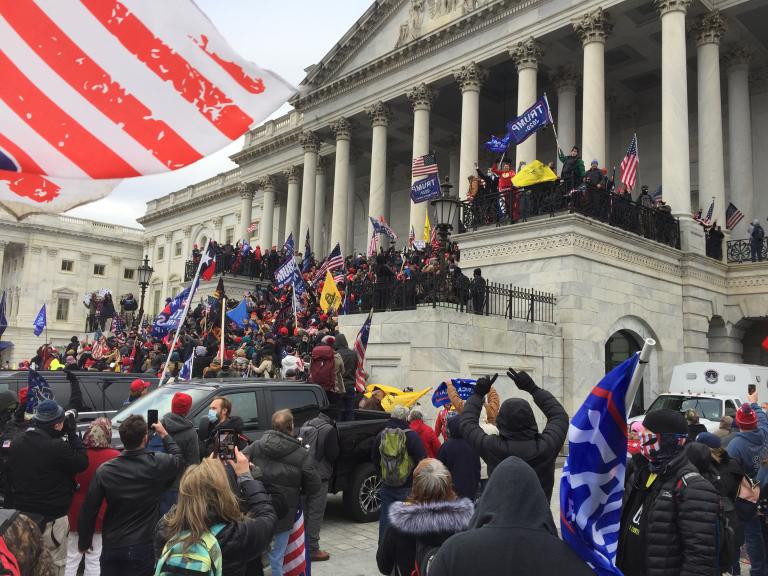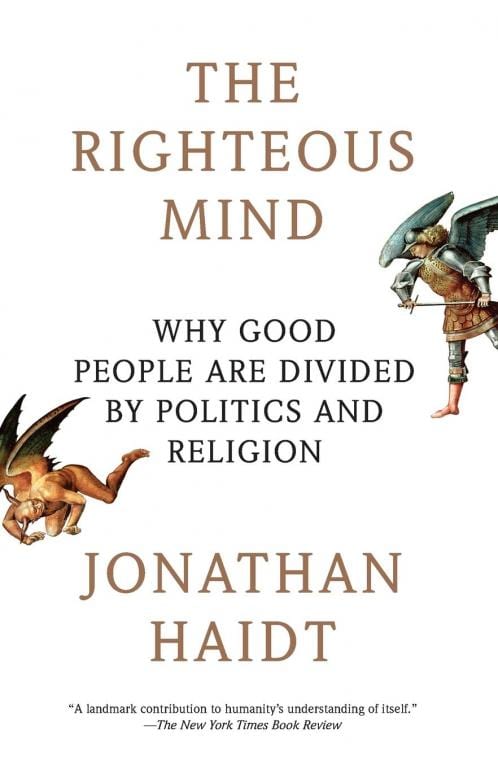In an episode of the Winsome Conviction podcast, one of the hosts said the following before immediately correcting himself:
“Listen, incivility is a problem in our country but it’s not like we’re killing each other over it.”
In light of recent events, especially the Capitol riot on January 6th, he no longer could make that assertion. In fact, incivility literally is killing people.

Over the past number of years, incivility has destroyed friendships. It has divided families and weakened churches. It undermines our ability to testify to the gospel around the world. This is one more reason why Meuhlhoff and Langer’s recent book Winsome Conviction: Disagreeing without Dividing the Church is a significant read for churches, ministries, and, for that matter, any Christ-follower.
(This is the final segment of the series. Check out Part 1, Part 2, Part 3)
Why be civil?
Sad to say, many in the church no longer aspire to demonstrate civility. They suppose the evils or ignorance of the “other side” gives warrant to fight by every means possible.
What’s the point of civility when you think the other person disregards God’s revelation in Scripture? When you think their ideas could impede the growth of the church and the spread of the gospel? Meuhlhoff and Langer give multiple answers. Here is a couple to think about.
“The goal of civility is not to silence others but to help them be heard.
One of the goals of the sorts of discussions we are advocating is to “achieve disagreement.” In order to do this, we believe both parties need to understand the other, otherwise they have simply achieved misunderstanding, not an actual disagreement. The goal is for both parties to be heard—more than that, they have to be heard not just at a factual level but at an emotional level. We are advocating for empathy and being able to articulate the beliefs but also the feelings of one’s opponents.” (131)
For me, learning this lesson and skill many years ago was life-changing. If we are not willing to listen with the intent of understanding, then we don’t love. If we are not opened to changing our minds, we’re not humble.
“Nuanced thinking is a natural product of empathetic listening to others who have differing viewpoints and is necessary to refine well-intentioned but ineffective policies—a phrase that probably describes most social policies when they are first implemented. Civility is not the solution to our social problems; it is just the precondition for being able to work together to solve our social problems.” (132)
“Nuanced thinking”? What’s that?
“Nuance” has become a foreign word. People have as much patience for nuanced thinking as they do COVID or another 2 years of wearing masks. Yet, nuanced thinking is essential for anyone humble enough to acknowledge the wonder of God’s glory in creation and our finite role in it.
Why have so many people given up on nuanced thinking? Several possible reasons come to mind. Laziness. Lack of knowledge. Impatience. Lack of wisdom. A lack of love.
What happens when we appreciate the complexity of our world, the problems we face, and the dynamics at play within our hearts and communities? We adjust our expectations about what is possible and how we might wisely go about seeking unity, and perhaps even agreement.
One of my favorite takeaways from the book is found in chapter 10, where struggles in the church as compared to joint pain. They point out that some problems need to be managed, not solved.
In this rich chapter, they remind readers that successful conflict management concerns both facts and feelings. They state,
“Conflicting convictions are almost never simply about propositional beliefs; they are almost always about the values and emotions. We don’t achieve disagreement until the conflicting parties can clearly state what each other believes and why the matter is so important to them.” (142)
If we would shift the focus of our attention, we might be able to temper unruly emotions and improve our ability to perspective take. For instance, the authors say,
“Honestly, our biggest problem is not the lack of common ground but rather our preoccupation with our differences—a preoccupation that makes us slow to acknowledge common ground and even slower to make something of it.” (144)
What changes a person’s mind?
 We’d do well to heed the insights from Jonathan Haidt’s research, like that found in The Righteous Mind. In it, he delves into the primary reasons why people change their minds…. and it a less to do with rational persuasion than you might think. Most people who change their mind about significant things begin at the same starting point:
We’d do well to heed the insights from Jonathan Haidt’s research, like that found in The Righteous Mind. In it, he delves into the primary reasons why people change their minds…. and it a less to do with rational persuasion than you might think. Most people who change their mind about significant things begin at the same starting point:
they get to know and even like someone who disagrees with them.
If we internalized that point, what would be some implications for how we handle disagreement?













